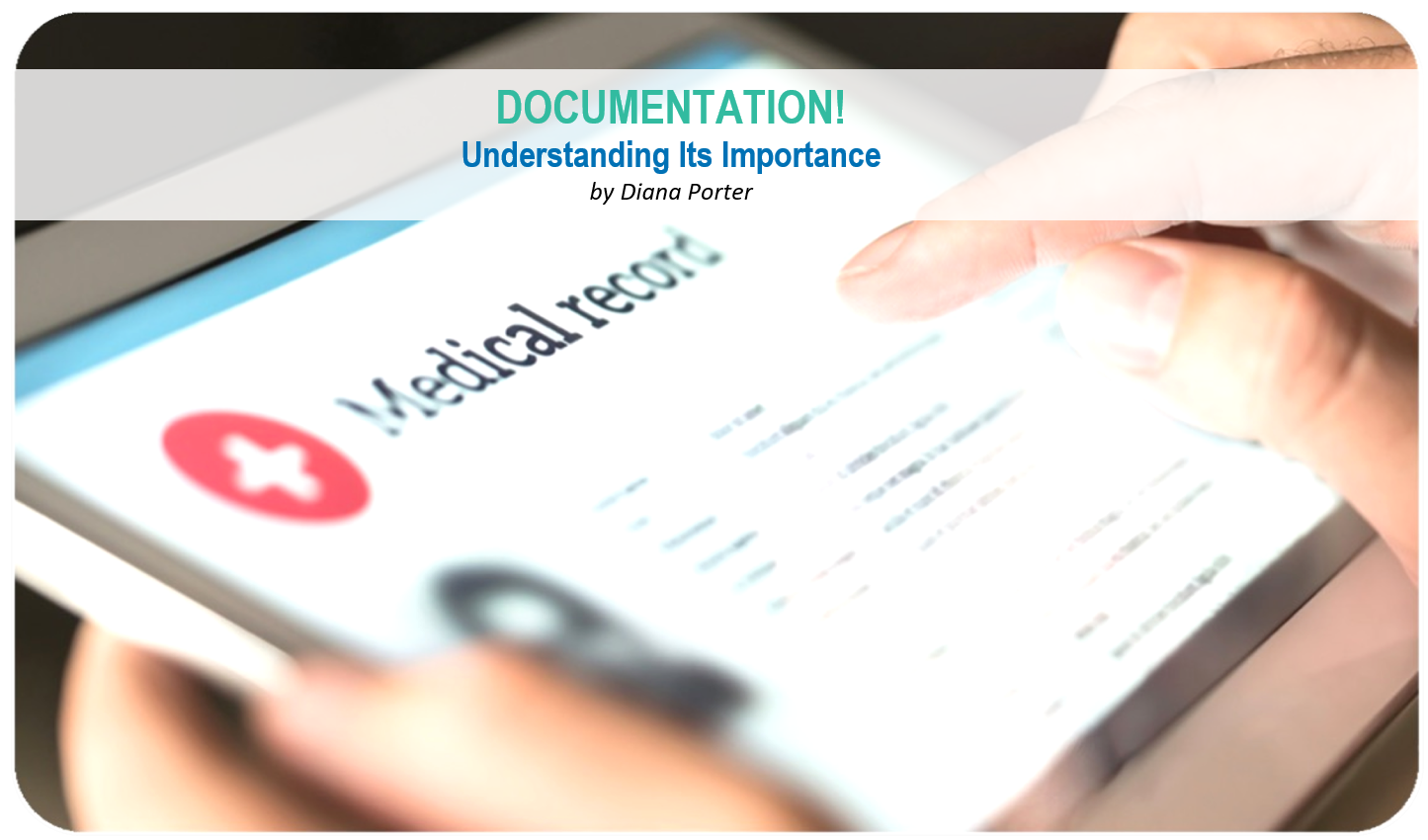“Our patients change daily, so each encounter brings a fresh set of physical, mental, emotional, social, and spiritual needs, each of which we are called to address. In addition, the imperative that we fully, completely, and immediately document all aspects of each encounter has never been more real. As we let our professional curiosity direct us to a higher understanding of our patients’ needs, that understanding must be shared with our fellow team members for optimal care delivery. Delays in documentation can no longer be allowed to occur—we can and will do better!”
Ron Hogan, CEO & President, Inspired HomeCare, emailed weekly message 3/20/23[/vc_column_text]
Proper Documentation is Mandatory
Code of Federal Regulations: Title 42 CFR Part 484.110[1]
“The HHA must maintain a clinical record containing past and current information for every patient accepted by the HHA and receiving home health services. Information contained in the clinical record must be accurate, adhere to current clinical record documentation standards of practice, and be available to the physician(s) or allowed practitioner(s) issuing orders for the home health plan of care, and appropriate HHA staff. This information may be maintained electronically.
[1] https://www.ecfr.gov/current/title-42/chapter-IV/subchapter-G/part-484/subpart-C/section-484.110
Reasons Why Proper Documentation Is Vitally Important In Home Health Care

ptimal Care Delivery – Proper documentation provides “a higher understanding of our patients’ needs.” Our sole purpose for being in the home healthcare field is to provide the highest level of care possible for our patients.
Reduced Hospital Readmissions – Proper documentation ensures that all caregivers are apprised of the patient’s current status so that they always receive the proper care and thus reduce the chance of readmissions.
Improved Communication – Proper documentation, when done in a timely and accurate manner, helps with improved scheduling and smooth communications. Proper care plan documentation builds strong relations with referral sources, patients and their families.
Administrative Tasks And Billing – Proper documentation ensures proper billing so that our company is paid for services rendered. It also ensures payroll is accurate when hours and visits are documented thoroughly.
Julie Taitsman, Chief Medical Officer for the US Department of Health and Human Services, Office of Inspector General further explains the value of proper documentation in her audio podcast:
Importance of Documentation:
“Why is proper documentation so important? What can you do to make sure your documentation practices are correct? Proper documentation, both in patients’ medical records and in claims, is important for three main reasons: to protect the programs, to protect your patients, and to protect you the provider.
Good documentation is important to protect our programs. Accurate documentation ensures the Federal health care programs pay the right amount—not too much and not too little—to the right people.
Good documentation is important to protect your patients. Good documentation promotes patient safety and quality of care. Complete and accurate medical recordkeeping can help ensure that your patients get the right care at the right time. At the end of the day, that’s what really matters.
Good documentation is important to protect you the provider. Good documentation can help you avoid liability and keep out of fraud and abuse trouble. If your records do not justify the items or services for which you billed, you may have to pay that money back.”
Delivering quality care for our patients is our highest calling. Proper and timely documentation of care is an absolute necessity to achieve this calling and needs to be as automatic in our work life as breathing. Because, just like breathing, we will not succeed without it! ~DP

